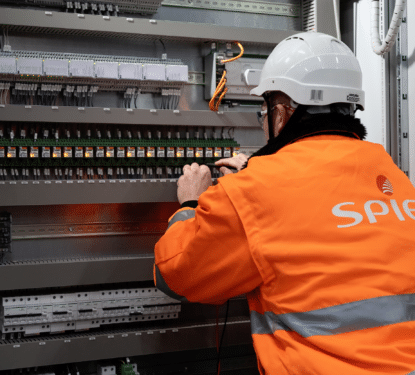One reason could be that the Renewable Energy business is taking longer to deliver against its promises and needs more funds before it will generate profit. Most systems are capital intensive and rely on “old technology” that has a strong element of empirical science which does not always scale up too well. But the vast majority require large subsidies to compete against traditional energy sources. Whilst it is a given that these subsidies are necessary and will stay in place for some years, it is the fact that they are dependent upon them that in the present economic climate makes investors nervous. So investment in Renewables does not look as attractive as it did two years ago.
Smart Grid technology is not immune to risk but it does offer some antidotes to the concerns related to other Clean Tech businesses. The first is that the technology is for the most part well proven and it is not so capital intensive and could offer many profitable add on services. The major part of the business will be retrofitting existing transmission and distribution systems and therefore major cost savings will be gained for minimum capital outlay. That will definitely make the investment proposition more attract for both the electrical utility suppliers and major property and industrial users with the latter installing micro grids.
Currently the Achilles’ heel for Smart Grid is the security issue and closely allied to this is the lack of a common communication protocol. However the world’s major IT and Communications companies are clamouring at the gate to enter this business and we should not doubt that they have the technical and financial strengths to solve these problems. At the same time this would relieve the Utility Companies of the major responsibility of finding the funds in this area of the business in which they also have little expertise.
Another major factor that seals the attractiveness of Smart Grid’s investment potential is that unless we have a smart grid, renewable electricity power will not work. A smart grid is the only way of matching the supply of electricity with demand at the point of usage for the highly variable electrical output received from renewable sources. For those involved in producing and distributing electricity the benefits of smart grid also deliver a dramatic reduction in wasted power and consequent increase in the ROI, whilst consumers will reduce their energy bill. Legislation to reduce CO2 emissions will ensure that renewable electrical power will rapidly increase and will by 2050, be the major source of electrical power.
Most of the traditional electrical power transmission and distribution manufactures have reported increased sales in 2009 compared with 2008. The first quarter of 2010 has been stable but almost all are forecasting a significant increase in revenues in 2010. The publicly owned pure smart grid suppliers have for the most part had a disappointing 2009 with revenues down on 2008 but those associated with communications have seen significant growth in revenue. Again all are forecasting a return to growth in 2010 now that the Smart Grid Stimulus program is being implemented.
In the first 5 months of 2010 we have identified 30 acquisitions compared with 10 in the whole of 2009. However data for 2009 has been collected from historic records and no doubt some acquisitions have been missed. But even allowing for that, the rate of consolidation in this business has increased rapidly and we expect for the remainder of this year it will continue at the same pace.
This month Honeywell has joined in with the acquisition of Akuacom Inc. This acquisition beefs up Honeywell's current Smart Grid portfolio by enabling it to provide utilities and independent system operators (ISOs), two-way communication with energy management systems at commercial and industrial sites. Honeywell is one of the "big four" building controls firms– along with Johnson Controls, Siemens, and Schneider Electric – with nearly ubiquitous temperature and HVAC controls, several of which already interface with demand response software. In the technology of electrical network management control Honeywell is not yet on a par with the later two companies. However in North America it has a presence in more than 10 million commercial buildings and thousands of industrial plants. As such, adding demand response technology will let Honeywell leap from inside the building envelope to the utility. This acquisition confirms the growing consolidation process in the smart grid industry.
We expect that many of the VC-backed pure smart grid companies will go for an IPO this year and some will be acquired. Those that do neither will be in danger of getting frozen out of the market in the next few years. Finally as a mark of how fast things are moving in the Smart Grid business we recorded this month 11 alliances between major players and this follows on from 10 in April. This augurs well for the future and is yet another fact that suggests this business is on route to achieving jewel in the crown status within the clean tech industry.



